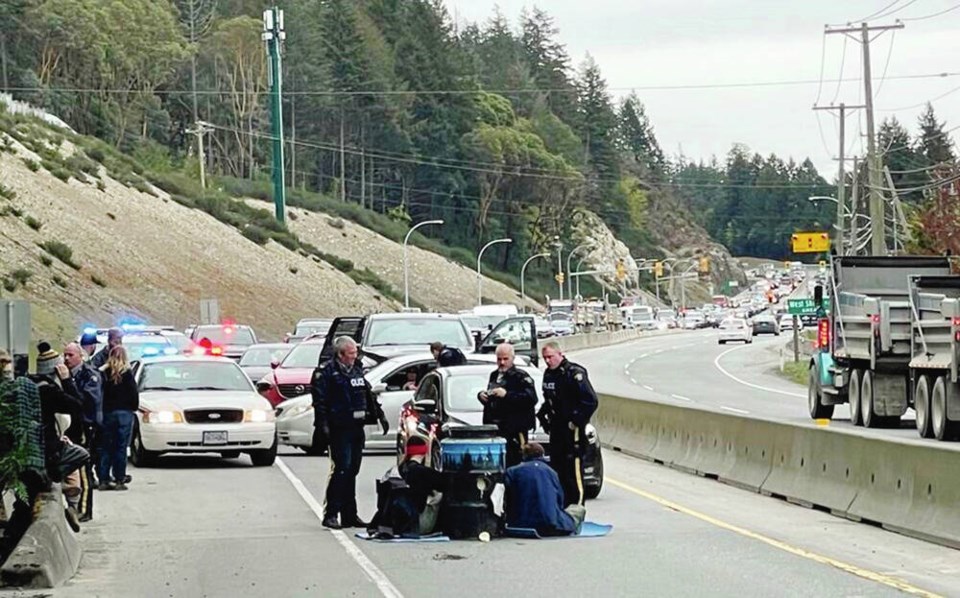When the English philosopher Thomas Hobbes wrote Leviathan in 1651, he laid out the reasons why we require government and law.
He had much need to. In his time, the ruling authority had been, too frequently, the rule of force.
In that unregulated state, he noted, human existence was “nasty, brutish and short.” And he produced a justification for bringing order into daily life.
If governments are established, Hobbes argued, we can think of the relationship between citizens and the state as a “social contract.” This contract establishes not just a basis for the rule of law, but a bulwark against those who believe that might makes right.
I bring this up because, in at least one sphere of contemporary public life, the social contract has been torn up. And as Hobbes foresaw, the results are nasty and brutish, though regrettably, all too long.
I’m talking in part about those clowns who blocked hospitals and schools last fall, in pursuit of their self-proclaimed right to spread COVID far and wide.
I’m also referring to the zealots who bar roads and bridges in pursuit of saving trees.
Most recently, we saw the Pat Bay Highway near the ferry terminal blocked by this bunch. The results were predictable.
One reader wrote this paper to say that his wife missed her appointment for cancer treatment in Vancouver. The next opening was weeks in the future.
Where, he asked, were the police? Standing idly by for more than an hour, would be the answer, as photos of the protest show. Yet they were warned well in advance that the blockage would take place.
And what say the protesters? Here is one Sophia Papp, an organizer of the Pat Bay chaos: “I understand the frustration of people stuck in traffic, but compared to climate change destruction, it’s paltry.”
So there you have the new social contract. Missed a cancer treatment? Paltry. Unable to get to work? Paltry. Couldn’t get the kids to school? Paltry.
I have a better choice of words: Nasty and brutish.
We’ve seen several years’ worth of this kind of lawlessness now, and on most occasions, the police do nothing.
This isn’t just professional dereliction, though it is all of that.
It is also subordinating the rule of law to the rule of force. Protesters certainly have the right of protest, but with it must come the prescribed consequences.
When these are withheld out of fear, of giving offence to a clamant ideology one supposes, we’re back in the 17th century. The only difference being that in those days, the citizenry, when they’d had enough, took matters in their own hands.
We’ve seen signs of that already, in roadside confrontations between protesters and their victims.
And who can forget the shambles in Ottawa this year, leading Prime Minister Justin Trudeau to invoke the politically correct version of the War Measures Act.
Leviathan was published the year the English Civil War finally ground to a halt, after violence and extremism had demolished that country.
While hopefully no such madness awaits us, our own social contract is strained to the limits. More of this next week.
jalmcfarlane@shaw.ca



